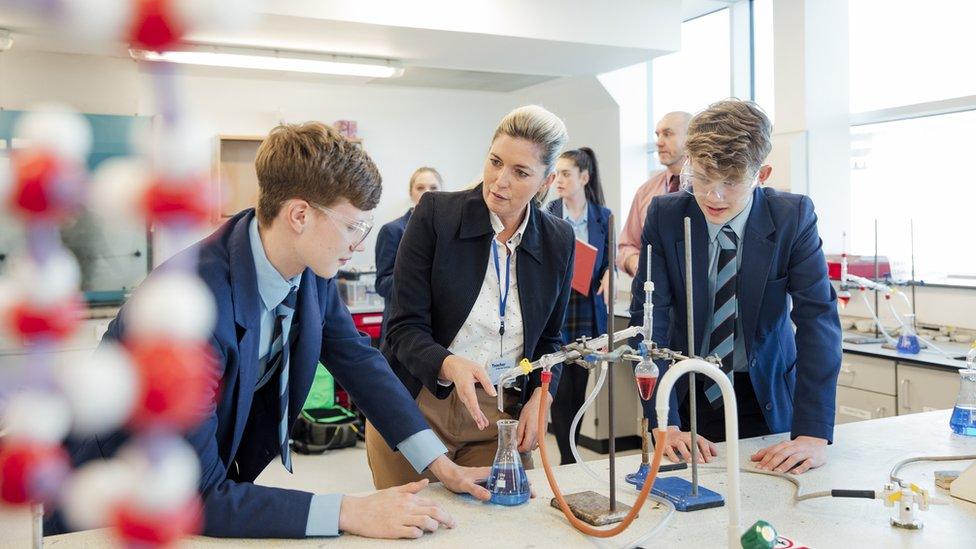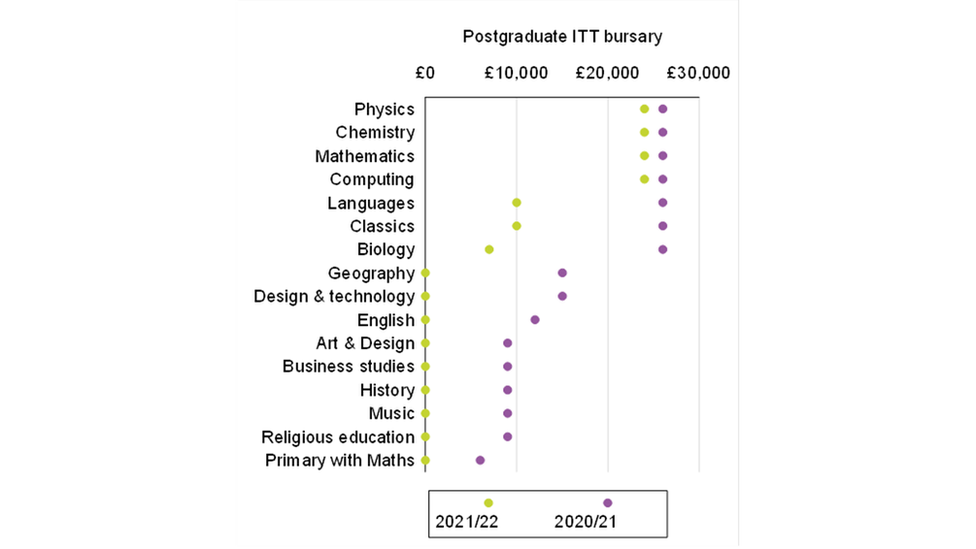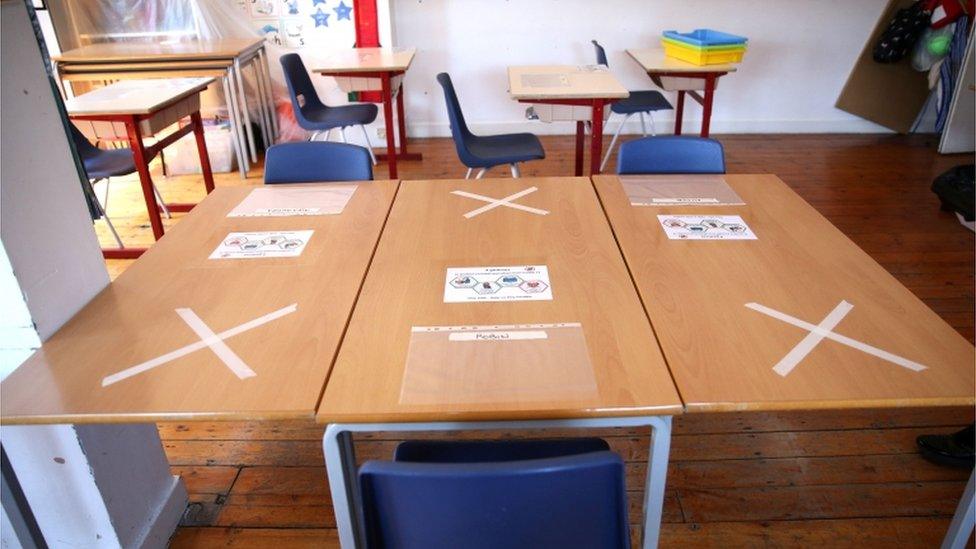Teacher bursary cuts: 'My teaching dreams have been destroyed'
- Published

Courtney Cole, 20, says her dreams of studying teaching at Cambridge have been destroyed
Courtney's dreams of Cambridge University have just been "completely destroyed".
That's how she describes her situation - because government money to fund student teachers in some subjects has been cut. , external
The 20-year-old says that without a teaching bursary, she can't afford to become an English teacher.
Yesterday, the government announced it was cutting all teaching bursaries, external (non-repayable government grants) for arts, English and humanities subjects in England from 2021.
There are still bursaries available for subjects including sciences, languages and maths, but the amount offered is falling by as much as 50%.
People wanting to teach languages and classics will now get £10,000, while biology teaching students will get £7,000.
Student teachers argue they have little time to work outside of their training so bursaries help pay for living costs.
The plans to cut bursaries for certain subjects has also been criticised by education bodies.
The government says the changes take account of "both recruitment to date and the future need for teachers in each subject".
'I feel disillusioned'
Courtney says teaching English has been her goal since leaving secondary school.
She's now in her final year at Southampton University where she studies English Literature and lives at home to save cash on rent.
She was going to apply to do a postgraduate qualification in English teaching - along with a bursary.
"I was about to apply to Ucas for this degree and I'm now having to rethink my ideas and goals."
She adds: "It shows the government has a contempt for all these subjects.
"For somebody who wants to be an English teacher, that is a really frightening concept to think that the subject you love and are passionate about is so devalued by the government you are going to work for."
'Extremely disappointed'
In a statement, the Universities Council for the Education of Teachers (UCET) says: "All students, in whatever phase or subject, need to be able to support themselves.
"They should also be treated equitably with their peers.
"Student teachers are a hugely beneficial resource for schools at the moment and they all need financial support that will allow them to complete their programmes."

Bursaries for physics, chemistry and maths are £2,000 less compared to last year
This year there's been a massive surge in applications for teaching.
Figures show that between February and August, there was a 30% increase in the number of people applying to teach - compared to the same period last year.
But UCET says the government shouldn't take this increase for granted.
"Although applications to ITE (initial teacher education) have increased because of the pandemic, the effect could be short-lived and underlying problems are likely to remain.
"Removing bursaries is a short-term measure that could have long-term implications."
In a statement given to Newsbeat, the Minister for School Standards Nick Gibb said: "Teaching remains an attractive proposition, which is evidenced by the significant increase in applications over the last few months, and these financial incentives are set to attract those to the hardest to recruit subjects".

Teaching bursaries for arts, English and humanities subjects have been scrapped in England from 2021
It's "not a big surprise" that some subjects, like history and English, have had their bursaries cut, according to Jack Worth, lead economist at the National Foundation for Educational Research.
Bursaries have been changed before to reflect the subject areas the government needs more teachers for.
"However, the strategy behind some of the individual subject bursary decisions is a little less clear," Jack Worth told Newsbeat in a statement.
As an example, he gives "the decision to significantly reduce the languages bursary, when recent recruitment figures have been similar to mathematics and chemistry - which have seen only small reductions in bursaries."

Follow Newsbeat on Instagram, external, Facebook, external, Twitter, external and YouTube, external.
Listen to Newsbeat live at 12:45 and 17:45 weekdays - or listen back here
- Published23 September 2020

- Published1 September 2020
